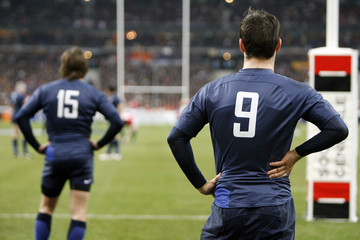 OPINION: The days of watching or listening to any public event – whether it be a political debate, a rugby game or whatever – in respectful silence or with the accompaniment of only supportive applause, are long gone. It is far more usual for supporters who don’t like the opposition or the speaker, to boo them loudly at every opportunity. At super rugby games, for example, it is quite common for kicks at goal to be accompanied by loud booing from the opposition spectators. In this case, the effect is probably zero – most kickers just ignore the booing and some probably use it as an extra incentive.
OPINION: The days of watching or listening to any public event – whether it be a political debate, a rugby game or whatever – in respectful silence or with the accompaniment of only supportive applause, are long gone. It is far more usual for supporters who don’t like the opposition or the speaker, to boo them loudly at every opportunity. At super rugby games, for example, it is quite common for kicks at goal to be accompanied by loud booing from the opposition spectators. In this case, the effect is probably zero – most kickers just ignore the booing and some probably use it as an extra incentive.
But there is an increasing reaction against booing as a tactic. It can be very annoying to the rest of the spectators or audience, particularly if it is loud and used in a very un-discriminatory fashion, and encourages people to be negative rather than positive. And certainly, in sport, it’s doubtful if it has any real impact apart from being annoying. Far better to emphasise the positive by applauding even the opposition if they do something particularly well and put the booing aside.
I particularly disagree with booing at decisions by officials that you don’t like or agree with. The fact is that official is generally doing their best and often have to make rulings in difficult or unclear situations. The use of the TMO in rugby has been intended to reduce this problem but I think it often makes it worse. Many a televised game has been spoiled by interminable conferences between the referee and the TMO, particularly if it is all in vain and the decision is left to the referee anyway. This is not to say that I disagree with the TMO approach – on balance I think the use of technology improves the quality of decisions made, it is just the time factor which can be so irritating.
 Does all the above mean that I disagree with booing under all circumstances? No, it doesn’t. The problem with being a spectator at large events is that individual comments get lost in the general noise level. And there are occasions when some sort of reaction is probably warranted, the most obvious example being deliberate foul play – particularly if it is off the ball and thus unlikely to get picked up by officials. Under those circumstances, a solid boo from the spectators is likely to get more attention from the officials than attempts at individual comments. And if booing was reserved for instances like this then a loud boo from the spectators would mean more and would probably be more likely to attract the attention of the officials.
Does all the above mean that I disagree with booing under all circumstances? No, it doesn’t. The problem with being a spectator at large events is that individual comments get lost in the general noise level. And there are occasions when some sort of reaction is probably warranted, the most obvious example being deliberate foul play – particularly if it is off the ball and thus unlikely to get picked up by officials. Under those circumstances, a solid boo from the spectators is likely to get more attention from the officials than attempts at individual comments. And if booing was reserved for instances like this then a loud boo from the spectators would mean more and would probably be more likely to attract the attention of the officials.
It would be good if audiences/spectators could be that disciplined in their approach. However, the chances of that are probably not good. People don’t like being told what to do at the best of times, and when they have gone to an event to enjoy themselves they will behave in the way they want to behave.
It would still be a positive move to see the changed approach outlined above.
By Bas Walker
This is another of Bas Walker’s posts on GrownUps. Please look out for his articles, containing his Beachside Ponderings.









Join the Discussion
Type out your comment here:
You must be logged in to post a comment.